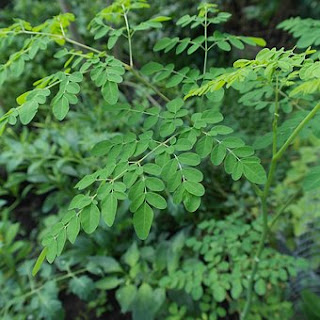
Other names: Japanese silver apricot,Kew tree, Maidenhair tree
Description:
Ginkgo Biloba are trees reaching to a height of 66–115 feet. It is well-known for its antioxidant and detoxifying
properties. It has fan-shaped leaves that sometimes bifurcates. It is called as the Maidenhair tree because the leaves resemble the pinnae of the maidenhair fern. It has yellowy seeds.
Parts used:
Leaves and seeds of maidenhair tree
Medicinal properties and uses:
There are 2 main components that are responsible for its medicinal effects
namely ginkgo flavone glycosides and terpene lactones. Ginkgo biloba also
contains flavonoids with antioxidant properties, ginkgolides(terpenoids)
that improve circulation as well as bilobalides that have neuroprotective
properties.
Ginkgo Biloba help to keep a healthy circulatory system by:
* improving muscle tone in the walls of blood vessels
* stopping blood clots from forming
* softening the arteries and helping to unblock the blood vessels
* relieving fluid tension in the blood vessels
* helps to increase the blood flow
Thus, ginkgo biloba is beneficial to the following health conditions:
Cerebral atherosclerosis
Cerebral edema
Peripheral artery disease
Arterial circulatory problems
Arterial obstruction
Reynard's disease
Cochlear deafness
Tinnitus
Vertigo
Impairment to memory and cognitive function
Alzheimer's disease
Dementia
Erectile dysfunction
Macular degeneration
Glaucoma
Ginkgo is effective in helping to treat conditions which involve the blood
vessels. It also has hematologic effects that lower serum fibrinogen
concentration.
Ginkgo has been known to aid alertness and memory. It also helps people who
suffer from vertigo by relieving the dizziness and nausea.
It also treats asthma and coughs.
Precautions:
Gingko can result in uncontrolled bleeding or hemorrhage and shouldn't be
used by people with bleeding disorders.
Gingko may increase frequency of seizure for people with epilepsy or anyone
with a history of seizures.
Gingko has also been known to cause some side effects in some people namely:
indigestion, vomiting, diarrhea, nausea, allergic skin reactions, difficulty
of breathing, dizziness and seizures.
THOUGH THE CONTENT OF THIS BLOG HAD BEEN TRIED/TESTED AND HAD BEEN USED
AS FOLK/HERBAL MEDICINE IT IS STILL BEST TO CONSULT YOUR DOCTOR BEFORE
TRYING THIS.

